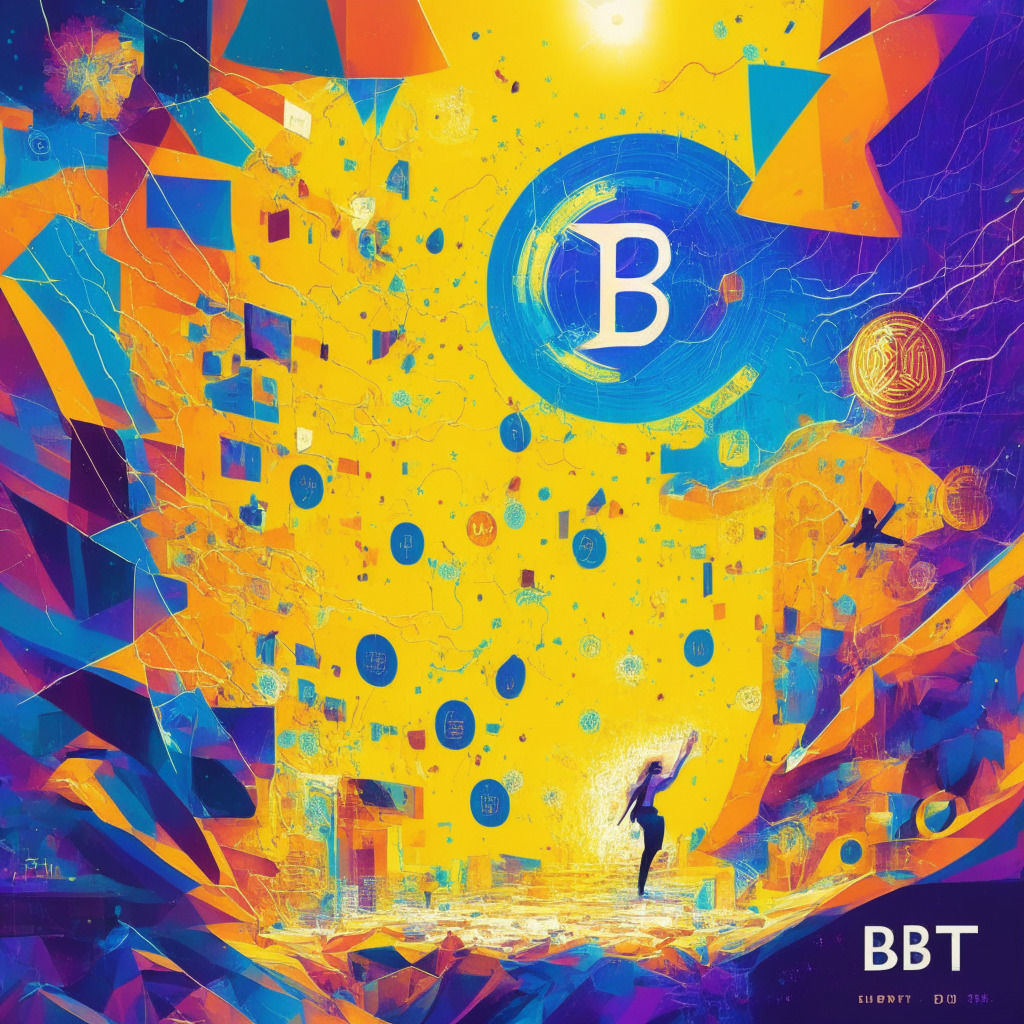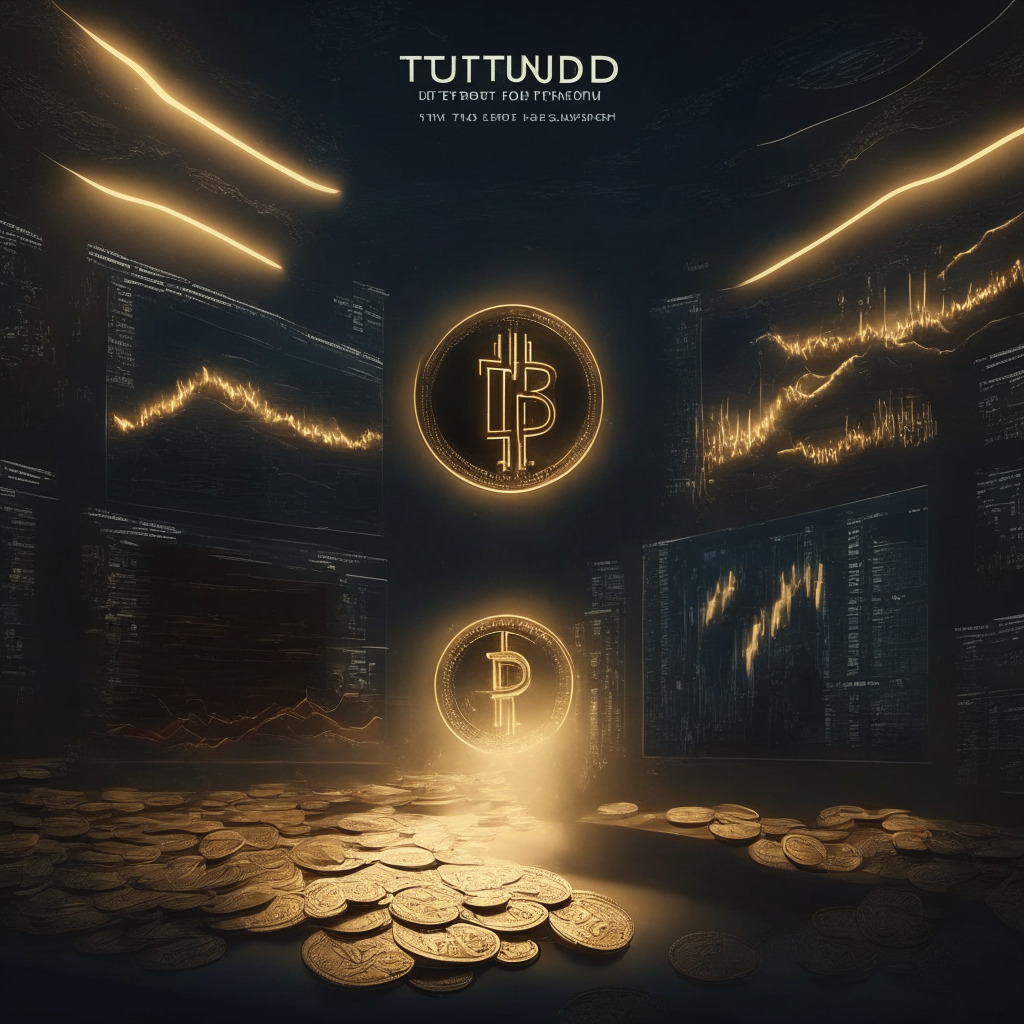Worldcoin co-founder Sam Altman recently celebrated mass adoption of the currency, noting people in Japan trading iris scans for Worldcoin tokens using the Worldcoin Orb. Despite this, reactions are mixed, with concerns about privacy, data safety, and uneven global response to Worldcoin’s adoption strategy. The future of crypto-identity verification and global blockchain adoption remains a topic of debate.
Search Results for: United Kingdom
Awaiting the Fed’s Decision: Bitcoin’s Price Volatility and Regulatory Changes in the Crypto Landscape
“As the Federal Reserve gears up to decide on interest rate changes, Bitcoin traders prepare for market volatility. Despite predicted rate movements, the short-term BTC price remains uncertain, potentially sparking unpredictable price shifts. With speculation for Bitcoin under $28,000 and a strengthening U.S. dollar, it remains to be seen how the cryptocurrency landscape will evolve amid regulatory changes.”
Worldcoin: The Hybrid of Blockchain and Biometrics Faces Upcoming Regulatory Scrutiny
UK’s data regulator intends to probe into OpenAI’s cryptocurrency initiative, Worldcoin, which merges blockchain with biometric identification. Amid its success, concerns surface over privacy and the robustness of its identity verification system. The project, which reaches a milestone of two million sign-ups, faces inevitable comprehensive investigations by regulators worldwide.
How UK’s Carpet Industry Embraces Bitcoin: A Bold Leap or A Risky Maneuver?
Flooring Hut, a leading online carpet retailer in the U.K, is investing in Bitcoin, equating it to “digital gold.” This move indicates a shift in how businesses deal with capital reserves, challenging traditional banking investments due to high inflation and sluggish banking interest rates.
Ripple’s Strategic Move to UK: Promising Regulatory Clarity or Risky New Challenge?
“Ripple is seeking to establish a firm footing in the UK, applying for registration as a crypto asset firm with the UK’s Financial Conduct Authority. This move comes after Ripple’s partial legal victory in the US concerning the classification of its XRP token. However, potential UK legislation targeting illegal crypto usage poses new challenges.”
Ripple Effect of UK’s Crackdown on Crypto Memes: Freedom of Expression Versus Financial Regulation
The UK’s Financial Conduct Authority (FCA) warns that crypto memes may lead to criminal offenses if they breach financial promotion rules. The new directive highlights that any communication inviting or inducing investment activity can be deemed a financial promotion, including memes. This regulation may greatly affect the unregulated meme arena in the crypto industry.
Digital Pound Dilemma: Treading the Path Between Financial Innovation and Privacy Concerns
“The UK’s proposal for a Central Bank Digital Currency (CBDC), the ‘Britcoin’, met with public criticism due to privacy and stability concerns. Critics also suggest the CBDC could destabilise commercial banks during a crisis. Conversely, some see state-issued digital currencies as a path to financial inclusion, and argue that privacy can be maintained through appropriate design and regulations.”
Navigating the Murky Waters of Metaverse Regulation: UK’s Online Safety Bill & Beyond
The UK House of Lords deliberates if metaverse should be governed by online safety regulations established in the UK’s Online Safety Bill, emphasizing the potential vulnerability of children and adults in these digital spaces. Variations exist in international regulations, raising standardization concerns and questioning the adequacy of traditional legal systems to address rapidly evolving digital spaces.
Predicting an Era of Central Bank Digital Currencies: Future Boon or Crypto Bale?
“Switzerland-based BIS predicts the issuance of as many as 15 retail Central Bank Digital Currencies (CBDCs) by decade’s end, with 93% of Central Banks globally involved in CBDC research, planning and piloting. The trend towards CBDCs might bridge the financial gap among the unbanked worldwide, but raises questions about traditional cryptocurrencies’ value as CBDCs would be government-controlled.”
Navigating the Complex Terrain of Crypto-Regulation: A Comparative Outlook
Animoca Brands CEO, Yat Siu, discusses the difficulties North American crypto entrepreneurs face compared to other regions due to macroeconomic and regulatory impacts. However, despite challenges like downturns in cryptocurrency prices and high global interest rates, the crypto industry continues to grow, with more people and smart contracts entering the scene. Siu’s comments highlight the fluctuating global terrain of crypto-regulation and the varying approaches of different region’s regulators.
UK’s Historic Crypto Regulatory Bill: Enhanced Security or a Threat to Decentralization?
A historical milestone was achieved in the UK, with a bill overseeing cryptocurrencies and stablecoins passing into law. This legislation, receiving Royal assent, brings crypto assets under increased regulatory scrutiny, intending to safely integrate them into the UK’s financial landscape. This includes treating crypto as a controlled activity and monitoring promotions.
Bybit’s Dubai License: Adapting to Global Regulatory Landscape & the Future of Crypto Exchanges
Dubai’s Virtual Assets Regulatory Authority grants Bybit a restricted MVP license, enabling service to a limited set of accredited investors. The exchange aims to obtain a full market product license to expand its services across the UAE.
Bybit’s Cyprus License: Balancing Crypto Regulation and Innovation in the EU
The Dubai-based crypto exchange, Bybit, has acquired a license for crypto exchange and custody services in Cyprus, highlighting its commitment to compliance and expansion in the EU. This development raises questions regarding the impact of the increasing regulation on the industry’s innovation, and how striking the right balance between regulation and innovation remains a crucial challenge for the sector.
Crypto Regulation: Blockchain Australia CEO Urges Balance Over US Approach
Blockchain Australia’s new CEO, Simon Callaghan, urges the Federal Government to adopt a balanced crypto regulatory approach, like the UK, Hong Kong, and Singapore, to foster innovation, economic growth, and ensure consumer protection; criticizing the US’ aggressive regulatory actions.
BlackRock’s Bitcoin Spot ETF: A Catalyst for Crypto Mass Adoption or Just Another Hurdle?
The crypto market recovery accelerated following BlackRock’s Bitcoin spot ETF application to the SEC, potentially signaling a critical step towards cryptocurrency mass adoption. The bullish trend affected the top thirty cryptocurrencies, while global movements indicate steady crypto adoption worldwide, with regulatory decisions remaining crucial.
EU Debit Card Provider Cryptopay’s Setback: Navigating License Revocation & User Impact
Cryptopay users face potential disruptions as UAB PayrNet, a licensed Electronic Money Institution in Lithuania, loses its EMI license. The situation highlights the vulnerability of cryptocurrency companies to regulatory changes and the importance of financial safety for users and companies in this rapidly-evolving landscape.
Gemini Staking Pro Debuts in UK Amid Regulatory Concerns and Ethereum Validator Changes
Gemini has expanded its cryptocurrency staking service, Gemini Staking Pro, to the UK, allowing institutions and high-net-worth individuals to participate in Ethereum staking. However, this service is not regulated by the UK Financial Conduct Authority, raising concerns regarding regulatory oversight and potential legal ramifications.
Binance Boosts TUSD Popularity Amid Regulatory Challenges: Pros, Cons & Implications
Binance announces zero-maker fee promotion for stablecoin TUSD and extends BUSD promotion amidst regulatory issues. The exchange continues to support TUSD, showcasing its agility and adaptability in navigating complex cryptocurrency markets despite regulatory challenges.
Binance Scrutiny: Balancing Innovation and Regulation in the Crypto Industry
Binance faces increasing government scrutiny, including being summoned to the Brazilian parliament due to its alleged involvement in facilitating asset transfers for pyramid schemes. The exchange is also under investigation by various global regulators, raising questions about its future and potential impact on the crypto industry.
Binance Brazil Director Summoning: Pyramid Scheme Suspicions & Global Regulatory Crackdowns
The Brazilian parliament may soon summon Guilherme Haddad, director of Binance Brazil, amid investigations into alleged pyramid schemes involving cryptocurrencies. Binance faces growing regulatory scrutiny worldwide, with Brazil investigating the exchange’s authorization for offering derivative market products since 2020.
German Agency Uses NFTs in Recruitment: Innovative or Risky Strategy?
The German Intelligence Agency (BND) has released a collection of 999 dog-themed NFTs, “Dogs of BND,” to attract young tech-savvy individuals with an affinity for blockchain technology. Acquired by completing a cyber quest, this initiative aims to recruit future talent fluent in blockchain and mitigate cybercrime.
Binance Expands Zero-Fee Trading Promotion: Legit Strategy or Desperate Move Amid Legal Woes?
Binance expands their zero-fee trading promotion to all TrueUSD (TUSD) trading pairs starting June 30th, despite facing numerous legal challenges and regulatory scrutiny. This strategic move aims to boost adoption of their stablecoin amidst increasing regulatory pressure.
Binance Launches Regulated Platform in Kazakhstan Amid Western Regulatory Woes
Binance launches a regulated digital asset platform in Kazakhstan amid regulatory troubles in the West. The platform offers crypto and fiat-focused services and aims to mitigate regulatory risks facing the exchange in the United States and Europe.
Uncovering the Binance Ltd Mystery: Shell Companies in the Crypto World – Legit or Not?
A recent finding revealed Binance Ltd and 2,400 other companies were registered under the same address in the UK. Binance clarified that Binance Ltd was not affiliated with their exchange. Shell companies are notorious for concealing ownership and illegal activities, but they also serve legitimate purposes like privacy protection, tax planning, and real estate investments.
Harnessing AI’s Potential: The Debate Over Stricter Regulations and Consumer Safety
Consumer protection groups in the EU are urging regulators to investigate AI models behind popular chatbots like OpenAI’s ChatGPT due to potential risks and vulnerabilities. As AI regulations tighten globally, balancing AI benefits with consumer rights and safety is crucial for creating a comprehensive regulatory framework and fostering public trust.
Binance Fends Off Scams: Importance of Due Diligence in Crypto Landscape
Binance issued a cease and desist order to a fraudulent company, Binance Ltd, which falsely claims affiliation with the cryptocurrency exchange. This incident highlights the importance of due diligence and caution when navigating the crypto landscape, amidst scammers seeking to profit from the thriving sector.
Unmasking the World of Shell Addresses: Binance’s UK Utility Closet and the Transparency Debate
Binance Ltd, part of one of the world’s largest crypto exchanges, shares a UK-registered address with 2,403 active companies in a small Suffolk town. This “utility closet” tactic, used to provide a “believable business location,” raises questions about transparency and ethical implications in the crypto industry.
UK’s FSMB Crypto Regulations: Boon or Bane for Blockchain Innovations?
The UK’s Financial Services and Markets Bill (FSMB), set to adopt comprehensive regulatory measures for cryptocurrencies and stablecoins, moves closer to becoming law. As the UK aims to become a global hub for cryptoasset technology, the FSMB’s approval coincides with the EU’s recent adoption of its own regulatory framework, demonstrating government recognition of the growing importance of cryptocurrencies in the global market.
Binance’s Dutch Market Departure: Upholding Regulations or Struggling to Comply?
Binance’s withdrawal from the Dutch market, prompted by its inability to secure VASP registration with regulatory authorities, raises questions about the crypto exchange’s commitment to upholding regulations and its ability to function effectively in an increasingly regulated landscape. Market participants are urged to conduct thorough research and consider shifting landscapes around cryptocurrencies and exchanges.
Binance Cancels UK Registration: Impact on Crypto Landscape and Regulatory Future
Binance has canceled registration for its UK-based subsidiary, Binance Markets Limited, with the Financial Conduct Authority (FCA), leaving no Binance entity authorized to provide services in the UK. The reasons behind this decision remain uncertain, as the company faces regulatory scrutiny globally, raising questions about its commitment to UK regulation.
Celsius Bankruptcy Plan: Converting Altcoins and Legal Concerns for Borrowers
Crypto lender Celsius proposes a reorganization plan to convert customer altcoins into Bitcoin and Ether, addressing regulatory concerns and maximizing asset value. However, borrowers may object to repayment demands without collateral return, potentially impacting industry regulations and customer trust.
Ripple Expands Globally Despite SEC Battle: How Regulatory Clarity Shapes Blockchain Future
Ripple continues to grow its operations in European and Asian markets despite an ongoing legal battle with the US SEC, benefiting from clearer regulations like the EU’s MiCA legislation. This contrast highlights the disparity between the US and other world powers in supporting blockchain and cryptocurrency markets, with MiCA facilitating mainstream adoption and realizing the full utility of cryptocurrencies.































